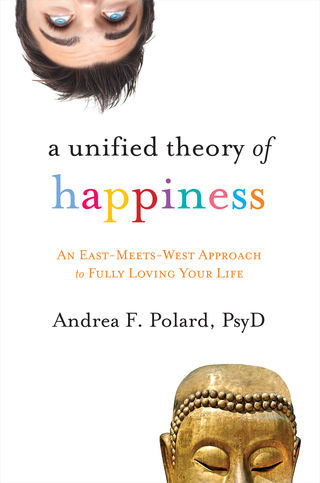Mindfulness
Help, My Partner Is Getting More And More Annoying!
How to get back to the big picture
Posted December 8, 2015
Here is the most profound thing you have ever heard: the secret to a long-term relationship is that two people need to be able to love long-term. If you think that this is so evident a truth that it doesn’t deserve attention, think again. The longer we are with someone, the more we are inclined to focus on faults while ignoring what we previously deemed as attractive or admirable. Instead of taking responsibility for this loss of perspective and our own failure to tap into feelings of love, we tend to blame the other. If only she did not put on the toilet paper the wrong way! If only he did not leave his socks on the floor! If only she could be more supportive! If only he could stop giving advice when I need a hug!
Surely, some new habits and certain new cell formations are added as we grow older. Nobody can escape the law of impermanence which does not always work in our favor. Let’s take my lines, for example. Sniff. Yet, most of the annoying characteristics we see in our partner were visible from the start, don’t you think? It’s just that we are reacting to them differently as we become familiar with them. We lose the whole picture as we stand too close to it. But before recommending how to step back, let me share briefly how we kill our love actively and what to do instead.
I recently read an article written by a woman listing the top seven most annoying things about her husband. It’s not that complaining is always a bad thing. Sometimes it can be a first healthy step (see blog).Yet the article was written triumphantly, revealing mostly the author’s inability to love. She might as well have titled her article: Seven Ways of Destroying My Love:
Ridicule
When you find a flaw, make fun of your partner, especially in public. Never mind your own imperfection.
What to do instead: As rejecting imperfection erodes love, identify your own imperfection and start to accept it as a fact of life. Then look at your partner again.
Pretend
Pretend to listen and agree when you don’t. Then be proud of having out-smarted the other.
What to do instead: Pretending amounts to lying, making it impossible to share reality with your partner. Speak the truth, thoughtfully and timely. At least, don’t suggest you care when in reality, you don’t.
Be Sarcastic
Use as much sarcasm as you can muster especially when your supposedly loved one has made him or herself vulnerable.
What to do instead: Studies show that young married couples who make even occasional sarcastic remarks about the other are much more likely to end up in divorce. Don’t hurt the other twice, first with your opinion and second with a snide remark. Stay away from sarcasm altogether!
Assume You Know Your Partner’s Real Intentions
Think that you know best what goes on in him or her.
What to do instead: As nobody knows anybody completely, ask questions and stay curious. It not only shows your humility. It keeps your love fresh.
Do His Or Her Job -- Then Hold It Against Your Partner
You cannot stand the dishes he leaves so you wash them yourself, with ever growing resentment of course.
What to do instead: This only reinforces your partner’s behavior. Either learn to tolerate a job undone or discuss it as a problem. Key here is to pick your battles wisely. Know what’s truly important to you while letting the lesser things go.
Talk Down
Make yourself feel better by feeling superior to your partner.
What to do instead: Sitting on a high horse may feel good at the time, but you also lose the ability to relate. Ground yourself and realize what you have in common. For every fault you see in the other, find one in yourself as well.
Complain About His Or Her Nature
You are a morning person while your partner comes to life in the evening, meaning he or she is obviously wrong.
What to do instead: Move into acceptance when it comes to characteristics that cannot be changed. The serenity prayer might work for you (“God, grand me the serenity to accept the things I cannot, the courage to change the things I can’t and the wisdom to know the difference”). Or pick up a stone and try to squeeze blood out of it. Ask yourself if you like to be accepted for who you are and realize how painful it is, not to be loved for the person you are.
Maybe your partner has turned into a harmful person and you want to destroy every bit of positive feeling you once so enjoyed. Most people, however, engage in the above types of behavior unintentionally and unconsciously, ending up with feeling annoyed with the other instead of noting how unloving they have become.
As we take responsibility for nurturing or ending our feelings of love, we have a chance to step back from our small picture that says “you” a lot, such as, “It’s all your fault.” We learn to see our own part, start to own our personal weaknesses and plain, human feelings. Eventually we may focus less on fault, but on the boat in which we all sit.
In addition, we can also turn inward and become contemplative. There is a reason why so many people turn to mindfulness and meditation these days (see my book: A Unified Theory of Happiness). As we access a more peaceful state of mind, we may begin to reconnect with the good we have come to ignore.
What do you authentically like about your partner? It might help to write down for what you feel grateful and expressive this frequently, in privacy and in public. I love to express my appreciation for my husband in the presence of my children. It feels so good to remember our blessings, however mundane they might be.
If you like this blog, you might also like to read about “10 Zen Things to Save Your Marriage” as well as "When We Feel Disconnected In Relationships and the Role of Psychotherapy"
NOTE: If this post in any way “spoke” to you, and you believe in might to others also, please consider sending them its link. Moreover, if you you’d like to read other articles I’ve written for Psychology Today, click here.
© 2015 Andrea F. Polard, PsyD. All Rights Reserved.
----I invite readers to join me on Facebook and to follow my miscellaneous psychological and philosophical musings on Twitter.
May all sentient beings be happy!





